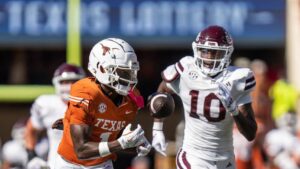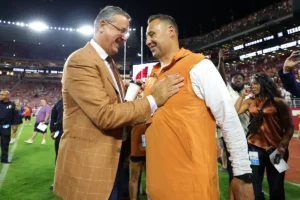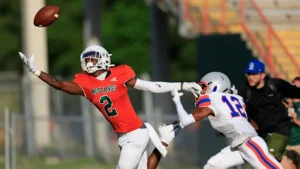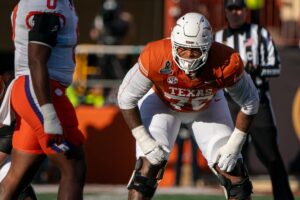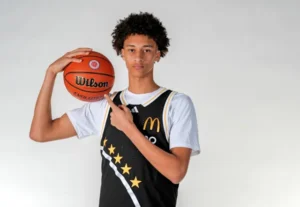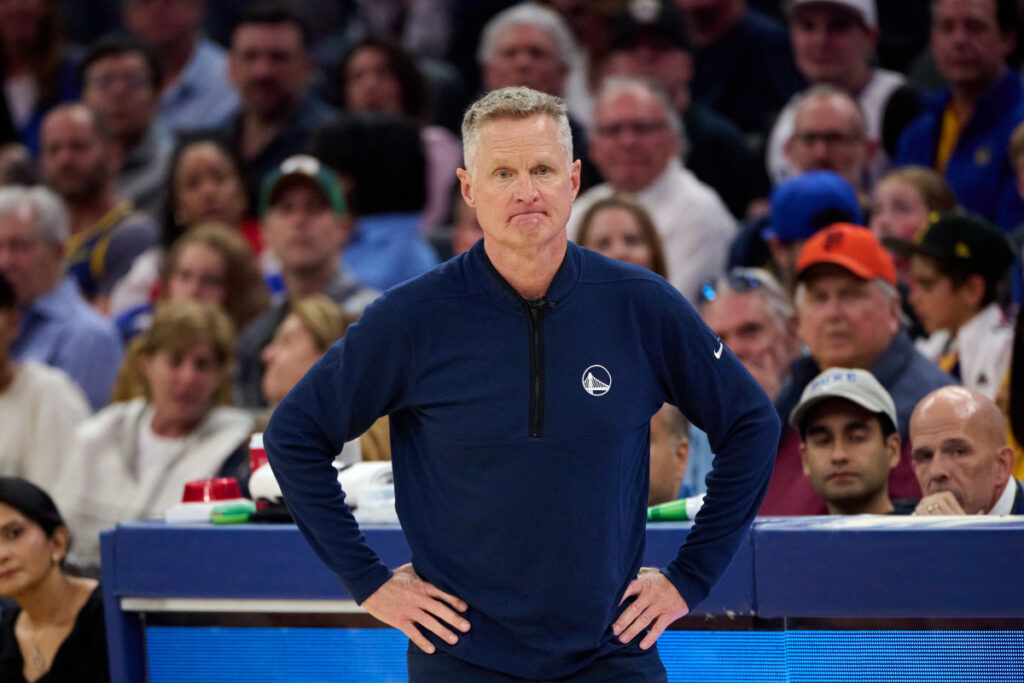
Steve Kerr, head coach of the Golden State Warriors, is no stranger to the spotlight, whether it’s for his team’s success on the court, his leadership, or his outspoken views on a variety of issues. However, recent comments he made in response to a chant by Houston Rockets fans involving Draymond Green have sparked controversy and placed Kerr in a position where he must address the backlash. In this article, we will explore the details of the incident, Kerr’s response, and the subsequent fallout from his remarks.
The Context: The Houston Rockets Fans and the Draymond Green Chant
The incident in question occurred during a game between the Golden State Warriors and the Houston Rockets. Draymond Green, a key player for the Warriors and one of the NBA’s most polarizing figures, was the target of a chant from Rockets fans. As is often the case with fan-driven interactions in sports, the chant was not one of support but rather a taunt aimed at the Warriors’ forward.
Draymond Green, known for his fiery personality and on-court intensity, has a reputation for being one of the NBA’s most emotional and sometimes controversial players. His outspoken nature, along with his tendency to engage with fans and opponents, has made him a lightning rod for both admiration and criticism. While many Warriors fans love his passion and the grit he brings to the team, Green’s interactions with opposing fans—especially those who mock or insult him—are a common part of his career.
The chant from the Rockets fans, which seemed to target Green’s reputation for on-court behavior, quickly became a moment of drama in the game. Although it was not an uncommon occurrence for fans to taunt opposing players, the nature of this particular chant resonated more deeply due to the ongoing narrative surrounding Green’s role on the Warriors and his confrontational style of play.
Steve Kerr’s Response: A Defensive Reaction
Following the incident, Steve Kerr took the opportunity to address the Rockets fans’ behavior in his usual calm yet pointed manner. Kerr is known for his measured responses in the face of controversy, but his comments on this occasion drew significant attention.
The coach expressed frustration with the way fans had directed their energy toward Green, calling the chant “disrespectful” and “unnecessary.” He defended Green, highlighting his importance to the Warriors’ success and the emotional and physical toll that Green’s leadership brings to the team. Kerr also pointed out that, while Green may not be everyone’s favorite player, the way in which fans chose to vocalize their animosity was out of line.
“We’ve been in this league for a long time, and I’ve never seen a player get as much flak as Draymond Green does,” Kerr said. “People have their opinions about him, but that’s one thing. To sit there and chant at a player, trying to degrade him like that, is something else entirely.”
While his words were not overtly inflammatory, Kerr’s tone and his unequivocal defense of Green added a layer of intensity to the already charged atmosphere. The fans, many of whom have long been at odds with Green’s brash style of play, took to social media and other platforms to voice their own opinions about Kerr’s remarks.
The Backlash: Fan and Media Reactions
Kerr’s comments did not go unnoticed, and soon, the coach found himself at the center of a media storm. His defenders pointed to his well-established track record of standing up for his players, particularly Green, who has often been the subject of media scrutiny due to his fiery personality and on-court antics.
However, many fans, especially those of the Houston Rockets, felt that Kerr was taking the situation too personally. Rockets supporters viewed the chant as part of the game—a way to rile up an opposing player and throw him off his rhythm. From their perspective, it was a standard fan interaction, one that shouldn’t warrant such a strong response from the opposing coach.
Critics of Kerr’s comments argued that he was overreacting to something that was relatively harmless in the context of competitive sports. “It’s just a chant,” some fans wrote online. “If Green can’t handle a little heckling, maybe he’s in the wrong profession.” They further argued that Kerr’s remarks only served to fuel the fire, turning a relatively minor event into a much bigger issue than it needed to be.
Additionally, some commentators pointed out that Kerr’s comments could be seen as undermining the role of the fans. The idea that fans should not be allowed to express themselves in such a manner was seen by some as an attack on the very essence of what makes sports so emotionally charged. Fans of opposing teams often take pleasure in taunting rival players, and this is part of the dynamic that fuels the rivalry between teams like the Warriors and the Rockets.
The Draymond Green Factor: A Complex Relationship
To understand the full scope of the controversy surrounding Kerr’s comments, it’s essential to examine the role that Draymond Green plays in this dynamic. Green is one of the most controversial players in the NBA, often known for his trash-talking, intense defense, and fiery attitude. His competitive nature, while an asset to the Warriors, often lands him in situations where he is vilified by opposing fans.
Over the years, Green has earned a reputation for being a player who isn’t afraid to engage with opponents, referees, and even fans. Whether it’s a taunt after a big play, an argument with a referee, or a verbal exchange with a fan, Green is rarely seen as passive. This aggressive and confrontational approach has earned him both admiration and criticism from different quarters.
Kerr’s defense of Green is likely a reflection of his deep understanding of his player’s personality. Kerr has coached Green through multiple championship runs and has seen firsthand how important the player’s emotional leadership is to the Warriors’ success. Kerr’s comments can be interpreted as an acknowledgment of the mental and emotional challenges Green faces as a player who is constantly in the spotlight. Kerr, in defending Green, was not only standing up for his player but also for the type of leadership Green provides—flawed and fiery though it may be.
At the same time, Kerr’s words may have been motivated by a sense of loyalty to his team and a desire to protect Green from unnecessary negativity. In a sport that often places players under immense scrutiny, Kerr’s attempt to shield his star player from the weight of public criticism is a natural instinct for any coach. However, this instinct may have clashed with the broader view of what fan behavior in sports should look like.
The Larger Conversation: Fan Behavior and Respect in Sports
The incident also touches on a broader issue of fan behavior in sports. In recent years, there has been a growing conversation about the line between passionate fandom and respect for players. Fans are often the lifeblood of a sport, but their interactions with players can sometimes cross into territory that feels personal or disrespectful.
The line between good-natured heckling and outright disrespect is often blurred. While many fans view chants, taunts, and jeers as a way to engage with the game, others see them as a form of harassment. The debate about where to draw that line has become more pronounced in recent years, especially as social media has amplified the voices of both fans and players alike.
For Kerr, the balance between respecting fans’ right to engage in their own way and defending his player from unnecessary vitriol is a difficult one to strike. While some fans argue that Kerr’s comments were an overreaction, others see it as a necessary defense of Green’s character and well-being. This debate raises important questions about the role of coaches in managing fan-player relationships and the responsibilities that come with such public interactions.
Kerr’s Dilemma
In the end, Steve Kerr’s response to the Draymond Green chant is a complex issue. While his comments were motivated by a desire to protect his player and defend him against what he perceived as unfair treatment, the backlash highlights the difficulties of navigating fan behavior in today’s media environment. Fans of the Rockets and other NBA teams may have seen Kerr’s defense as excessive, while Warriors fans likely appreciated his unwavering support of Green.
Regardless of where one stands on the issue, Kerr’s comments have brought attention to the broader conversation about respect and conduct in sports. The incident serves as a reminder that the relationship between fans, players, and coaches is fraught with nuance and tension, and finding common ground is an ongoing challenge for everyone involved.
